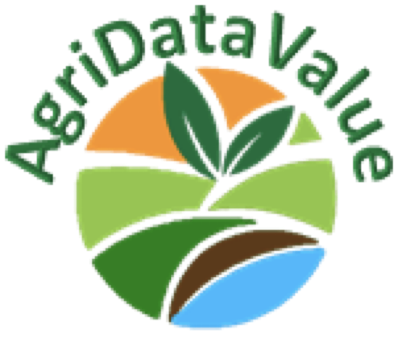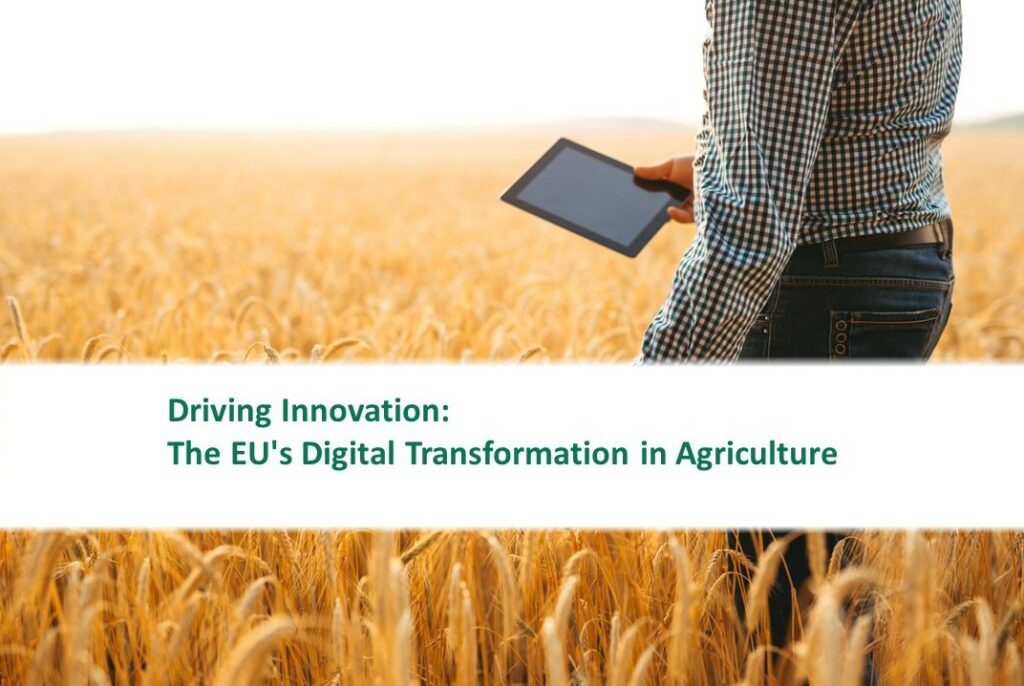AgriDataValue will lead the pan-European digital transformation in agriculture. The project aims to strengthen the smart-farming capacities, competitiveness, and fair income by introducing innovative technologies. The AgriDataValue consortium has conducted a thorough research regarding the EUs Digital transformation in Agriculture. In the following report the findings are presented.
The European Union (EU) has been at the forefront of embracing digital technologies across various sectors, and agriculture is no exception. As the world faces growing challenges such as population growth, climate change, and the need for sustainable food production, the EU recognizes the pivotal role of digital transformation in modernizing and optimizing agriculture. By integrating advanced technologies into farming practices, the EU aims to foster a more efficient, productive, and environmentally friendly agricultural sector.
1. Precision Farming: Enhancing Agricultural Efficiency
One of the key pillars of the EU’s digital transformation in agriculture is precision farming. This approach leverages technologies like Global Positioning Systems (GPS), remote sensing, and Internet of Things (IoT) devices to monitor and analyze fields in real-time. Farmers can collect data on soil quality, moisture levels, and crop health, enabling them to make data-driven decisions. With precise resource allocation, such as targeted irrigation and fertilization, farmers can reduce waste, optimize yields, and improve resource efficiency.
2. Smart Farming Solutions: Revolutionizing Agricultural Practices
Smart farming solutions have emerged as game-changers for the agriculture industry. The EU has actively supported research and development in areas such as autonomous machinery, robotics, and artificial intelligence. Automated farming equipment, such as robotic harvesters and drones, assist in labor-intensive tasks and enable quicker data acquisition for better decision-making. Artificial intelligence algorithms analyze vast amounts of data to predict crop health, disease outbreaks, and even weather patterns, empowering farmers to take preemptive measures and enhance productivity.
3. Digital Connectivity: Bridging the Rural Divide
The EU understands that digital transformation can only be effective if it reaches all agricultural regions, including remote and rural areas. To address this, the EU has been actively investing in digital infrastructure to bridge the digital divide. High-speed internet connectivity is crucial for farmers to access real-time information, market prices, and agricultural advisory services. Through initiatives like the Rural Broadband Deployment, the EU aims to ensure that even the most remote farms can benefit from digital tools and information.
4. Data-Driven Decision Making: Empowering Farmers
The EU emphasizes the importance of data-driven decision-making in agriculture. Various platforms and applications have been developed to gather and analyze data, providing farmers with insights into crop performance, market trends, and sustainable practices. By empowering farmers with data-driven knowledge, the EU seeks to enhance their decision-making abilities, promote sustainable practices, and ensure food security.
5. Sustainability and Environmental Impact
Digital transformation in agriculture is not solely about increasing productivity but also about fostering sustainability and minimizing the environmental impact. By enabling precision application of inputs, farmers can reduce the use of fertilizers and pesticides, thus minimizing the potential harm to the environment. Additionally, by optimizing production processes, the EU aims to support climate-resilient agriculture and contribute to its commitment to sustainability and the Green Deal objectives.
Conclusion
The EU’s digital transformation in agriculture is a transformative force, revolutionizing traditional farming practices and paving the way for a more resilient, sustainable, and innovative agricultural sector. Through precision farming, smart solutions, improved connectivity, and data-driven decision-making, the EU is driving the agriculture industry towards a technologically advanced and environmentally conscious future. By embracing digital technologies, the EU ensures that its farmers remain competitive on the global stage while promoting sustainable practices that benefit both the agricultural sector and society as a whole.


